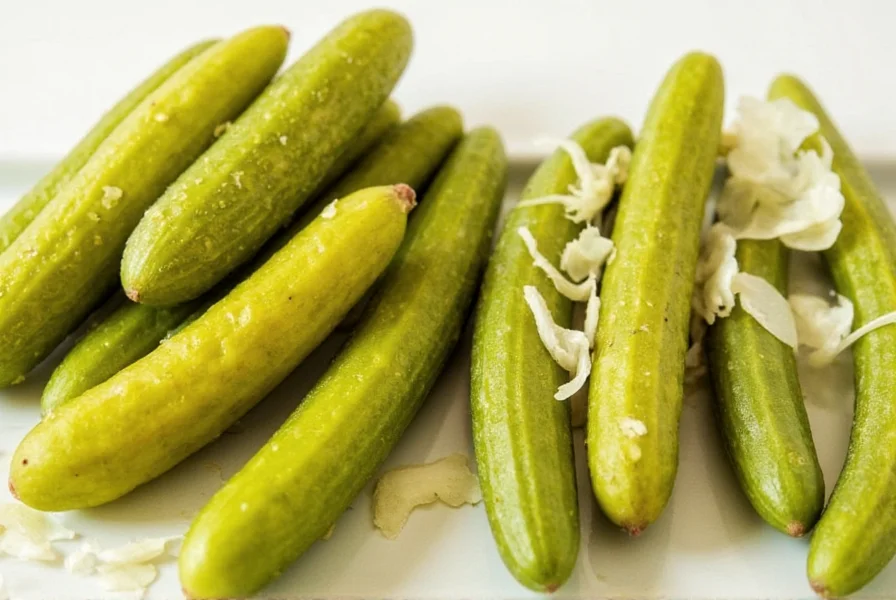
No, not all pickles are fermented foods. Only those made through natural salt brine fermentation are truly fermented; vinegar-based pickles are not. Here's why this matters for your gut health and how to spot authentic fermented pickles.
Table of Contents
- What Are Pickles Exactly?
- Fermentation Basics: The Science Behind the Sour
- Types of Pickles & How They're Made
- Pickles vs. Fermented Foods: A Side-by-Side Comparison
- Health Benefits: Fermented or Not?
- Buying Guide: Finding Real Fermented Pickles
- FAQ: Quick Answers About Pickles & Fermentation
- How to Make Your Own Fermented Pickles at Home
- Conclusion: Pickles—The Great Fermentation Debate Solved!
What Are Pickles Exactly?
Pickles start with one humble ingredient: cucumbers. But what happens next is where things get interesting—and slightly confusing. There are two primary methods to make pickles:
- Quick Pickling: Involves soaking cucumbers in vinegar, salt, and spices. It’s fast, easy, and perfect for weeknight snacking.
- Natural Fermentation: Uses saltwater brine and time to develop complex flavors and beneficial bacteria.
So, not all pickles are fermented—but some definitely are!
Fermentation Basics: The Science Behind the Sour
Fermentation is an ancient preservation technique used by cultures around the world. In its simplest form, it involves:
- Bacteria consuming sugars and starches
- Producing lactic acid as a byproduct
- Creating an acidic environment that preserves food and enhances flavor
This method also boosts probiotics, which are great for gut health. So if your pickles go through this natural process, you’re eating fermented food!
Types of Pickles & How They're Made
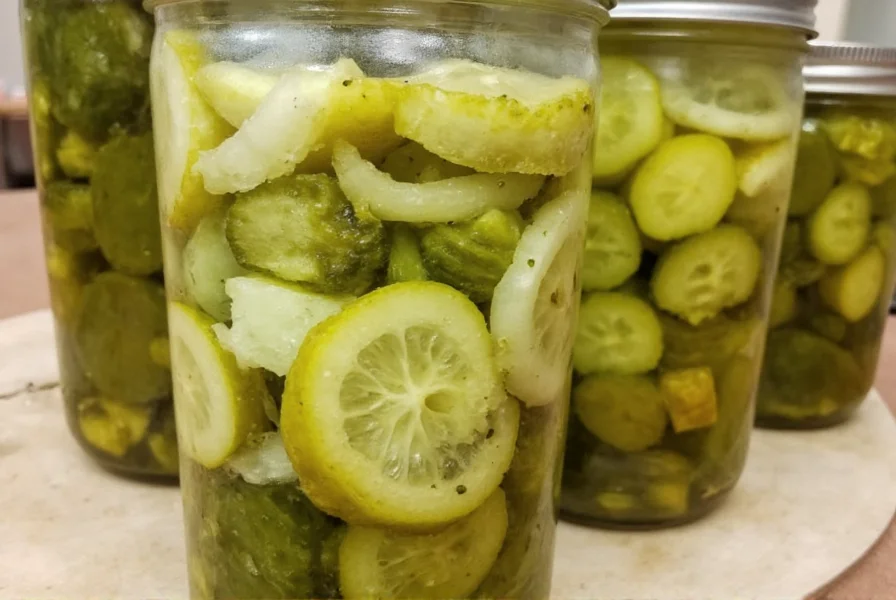
| Type | Method | Fermented? |
|---|---|---|
| Dill Pickles | Brined in saltwater with dill | Yes |
| Sweet Pickles | Vinegar-based, often with sugar | No |
| Bread & Butter Pickles | Vinegar, sugar, onions | No |
| Kosher Dills | Garlic added to dill brine | Yes |
| Quick Pickles | Microwave or stove-top vinegar method | No |
Pickles vs. Fermented Foods: A Side-by-Side Comparison
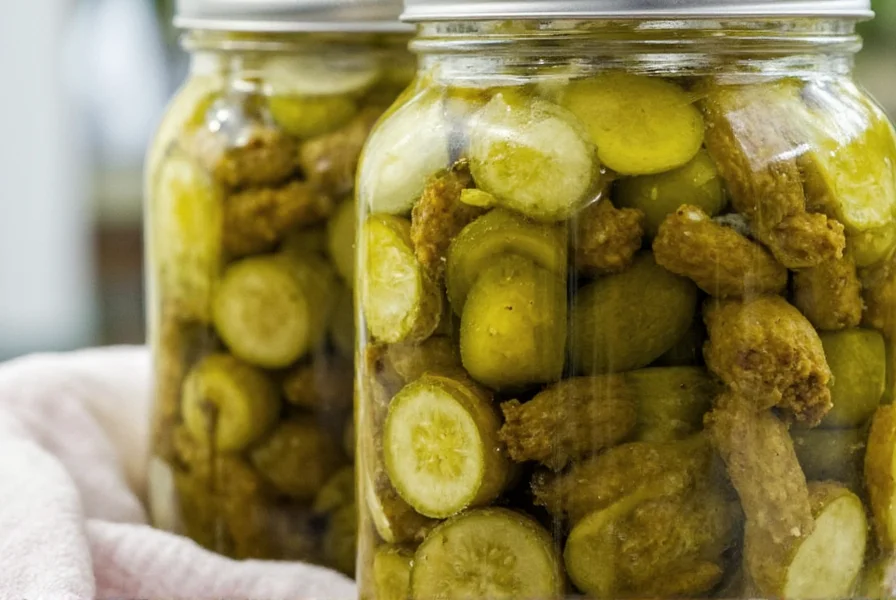
| Feature | Pickles (Vinegar) | Fermented Pickles | Other Fermented Foods |
|---|---|---|---|
| Production Time | Minutes to hours | Days to weeks | Weeks to months |
| Main Acid Used | Vinegar | Lactic acid | Variety |
| Probiotics Present | No | Yes | Yes |
| Taste Complexity | Simple, sharp | Deep, layered | Varies |
| Gut Health Benefits | No | Yes | Yes |
Health Benefits: Fermented or Not?
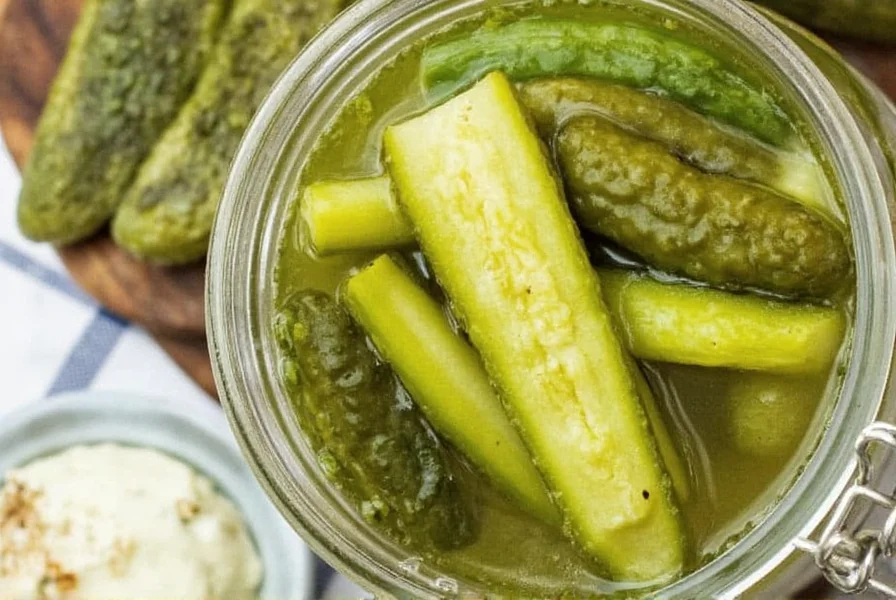
Let’s talk about the real kicker: gut health. Fermented pickles can be a source of live probiotics, supporting digestion and immune function. Vinegar-based pickles? Tasty, but no probiotic punch.
Other benefits include:
- Low calorie content
- Rich in antioxidants
- Source of vitamin K
- May aid hydration due to electrolytes in brine
Buying Guide: Finding Real Fermented Pickles
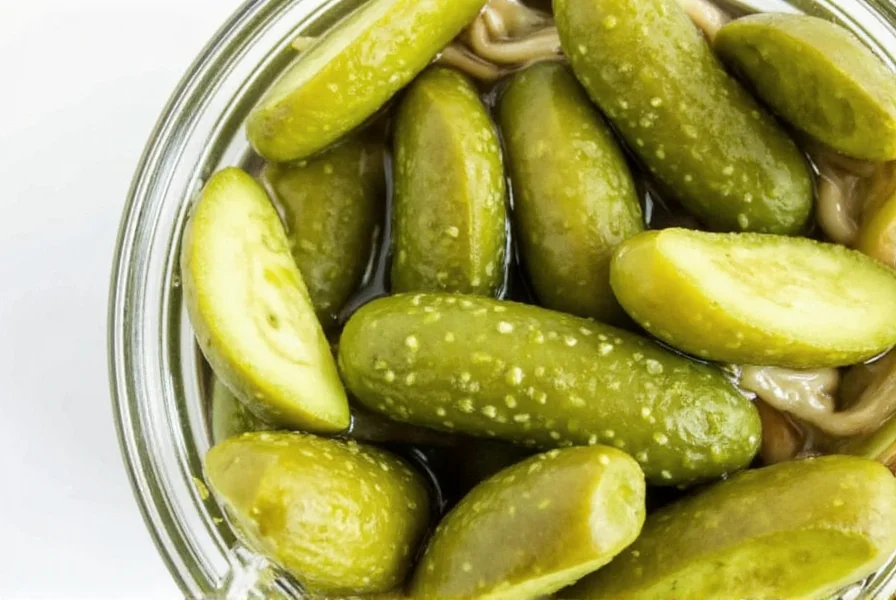
If you're looking for genuine fermented pickles, read labels like a pro! Here’s how to spot them on the shelf:
Look For:
- Ingredients List: Salt, water, spices — no vinegar
- Label Claims: “Naturally fermented” or “lacto-fermented”
- Storage Location: Refrigerated section (non-pasteurized means live cultures inside!)
Top Brands That Offer Fermented Pickles:
| Brand | Features | Best For |
|---|---|---|
| Bubbies | All-natural, refrigerated, no vinegar | Classic dill lovers |
| Grillo's | Italian-style, hand-packed, artisanal | Cocktail enthusiasts |
| Farmhouse Culture | Locally sourced, compostable packaging | Eco-conscious eaters |
| Cultured Organic | Raw, organic, small batch | Health-focused folks |
FAQ: Quick Answers About Pickles & Fermentation
Are all pickles fermented?
No. Only pickles made through natural fermentation (using salt brine and time) are truly fermented. Vinegar-based pickles—like sweet or bread & butter varieties—are simply "pickled" but not fermented. The key difference is whether lactic acid bacteria developed during production.
How can I tell if store-bought pickles are fermented?
Check three things: 1) The ingredients should list only cucumbers, salt, water, and spices (no vinegar), 2) Labels should say "naturally fermented" or "lacto-fermented," and 3) They'll be in the refrigerated section since live cultures require cold storage. Avoid shelf-stable jars unless specifically labeled as fermented.
Do fermented pickles need refrigeration?
Yes, after the initial fermentation period. Once fermented pickles reach desired sourness, they must be refrigerated to slow further fermentation. Homemade versions stay fresh 2-3 months refrigerated. Commercial fermented pickles are always sold refrigerated to preserve live probiotics.
Are fermented pickles healthier than regular pickles?
Fermented pickles offer unique benefits: live probiotics for gut health, enhanced nutrient absorption, and naturally produced vitamins. Both types provide low-calorie crunch and vitamin K, but only fermented versions deliver digestive benefits. Note: Both contain high sodium, so moderation is key.
Can I make fermented pickles without special equipment?
Absolutely! You only need: a clean glass jar, non-iodized salt, water, and fresh cucumbers. A fermentation weight (or small ziplock bag filled with brine) keeps cucumbers submerged. No airlock is required—just loosen the lid daily to release gases during the first week of fermentation.
How to Make Your Own Fermented Pickles at Home
Ready to ferment your own pickles? It’s easier than you think. Here’s a simple recipe:
Ingredients:
- Small cucumbers (Kirby or pickling varieties work best)
- Water
- Non-iodized salt (like sea salt or pickling salt)
- Fresh dill, garlic, peppercorns
Steps:
- Wash and trim cucumbers. Leave whole or slice into spears.
- Add herbs and spices to a sterilized quart jar.
- Pack cucumbers tightly into the jar.
- Pour in brine made from 1 tablespoon salt per cup of water.
- Use a fermentation weight or small ziplock bag filled with brine to keep cucumbers submerged.
- Seal with an airlock lid or loosely cover and let sit at room temperature for 5–14 days.
- Refrigerate once desired sourness is reached.
Conclusion: Pickles—The Great Fermentation Debate Solved!
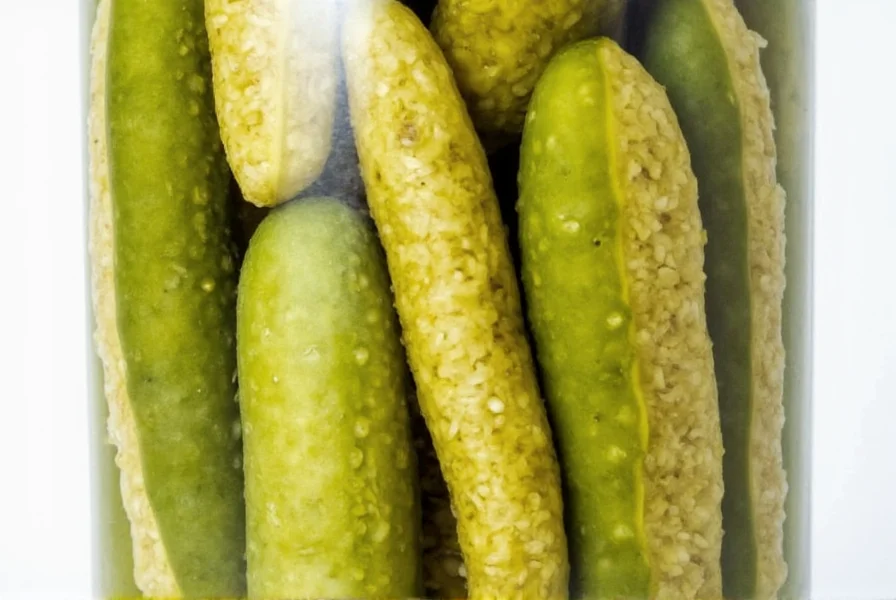
So, are pickles fermented foods? Yes, but only if made through natural salt brine fermentation. Vinegar-based pickles are simply pickled—not fermented. Understanding this difference ensures you get the gut-health benefits of probiotics while enjoying delicious, tangy snacks.
Want More Spice & Ferment Know-How?
Subscribe to our newsletter for weekly tips, recipes, and updates straight to your inbox. And don’t forget to drop your favorite pickle memory in the comments below!










 浙公网安备
33010002000092号
浙公网安备
33010002000092号 浙B2-20120091-4
浙B2-20120091-4